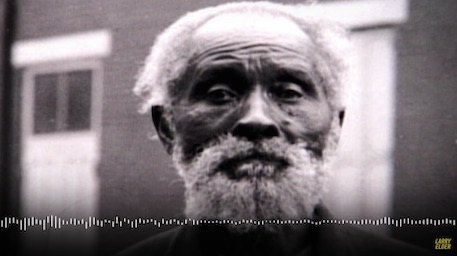It’s a great interview.
Larry Elder says one reason why he has such little patience for the social justice warriors of today is because of the experiences of people who went through almost unimaginable hardships in the past.

To illustrate this point, Larry not only talks about his father, but he brings up an interview from 1949 with former slave Fountain Hughes, whose grandfather belonged to Thomas Jefferson. Hughes gave the interview at the age of 101 years old. WATCH

If you haven’t read Booker T. Washington’s Up From Slavery, read it! It is really two books in one – first the story of a kid born in 1858 (-ish) and his experiences as a black slave and as a free man; and the story of a kid obsessed with fulfilling his desire of learning to read from when he was little, so much so that before he was 10 he was traveling on his own to the school he desperately wanted to attend, working all hours to pay for the school, then at age 22 or so starting his own school (Tuskegee Institute), with the requirement that any student had to put in hard labor to help build it. One of the most powerful examples of work ethic I have seen and an inspiration.
My father told me stories of the old ex slave who lived down the hill from his family in a small shack back when he was a child in the 1920s. Old Tobe was his name. My grandfather would occasionally hire him during planting, harvesting and slaughtering time. He taught my dad how to slaughter pigs. My grandfather would drive him to the store or doctor when he needed it. I don’t know any more details than that or where he ended up or is buried. I do know where the foundation for his shack still exists. I remember that story as an example of how individuals could get along together regardless of race because they were what my grandmother called “good-hearted”.
Booker T Washington was RIGHT. W.E.B. DuBois was WRONG.
In some of his comedy routines Richard Pryor used to do an old Black guy called “Mudbone”. Fountain’s voice in this interview reminds me a lot of that character, except not as forceful due to his advanced age:
https://www.youtube.com/watch?v=940OVw2MSwM&feature=youtu.be&t=1
It’s strange to think that I was alive at the same time as at least one former slave.
Booker T Washington also noticed and condemned members of his own race that had figured out they could make a living as race hustlers. By continually dragging up grievances over past wrongs, and agitating people about it. Convincing them they are still bound the chains Biden claims still exist.
Instead of encouraging people to press on and take advantage of new freedoms and opportunities available to them in this country. They were the forerunners of today’s Al Sharptons, and BLM. (and psycho-ranting white liberal women) That keep people blind to the opportunities available to them in this country, that recent black immigrants are not blind to and, are mostly more successful.
B.T.W. grew up about 40 miles from where I live, I was taught his story of hard work leading to success against difficult odds in school, but I don’t think my son was.
That was powerful…..and to think, people these days can get so twisted about the slightest things.
Larry Elder is fantastic.
I kept checking the bar, I didn’t want to stop listening to that man. It raised memories of some of the things I’d seen as a child and never really pondered the significance.
Directly reported history like this is a very cool thing! In the back of my mind I wondered what this was recorded on – Transcription record or tape? Wire recorders were not that high quality, but I digress… This is history that some people would rather we did not know about. That is why I keep my father’s collection of American Heritage books. History, written or spoken, is someone’s interpretation of events. As such there may be some discrepancies or “coloration” however I do think that when history is written (or recorded) closer to the time it actually occurred it will inherently be more accurate.
I can’t remember where I heard it, but there was a Depression era program to find and interview surviving slaves. They made audio recordings and written transcripts.
The average slave lived better than the average Northern factory wage slave. He had free health care, and a place to live and food after getting too old to work. The Northern wage slave had none of this.
The beauty in this mans voice made me cry. This is “our” history. There was no anger in his speech. I want to look in mirror and say to myself, why so angry!
Anger is the ruination of a soul, it is contagious. I was not angry listening to a former slaves voice. What I FELT, IS SORROW for not being more like him.
All these angry people, I am not angry at anymore, I pity them.
I am reminded by this soft spoken AMERICAN, life should be onward and upward.
I hope I meet him on the otherside.
He COULDN’T have been a slave!!! He doesn’t speak “Ebonics!!!” 😳